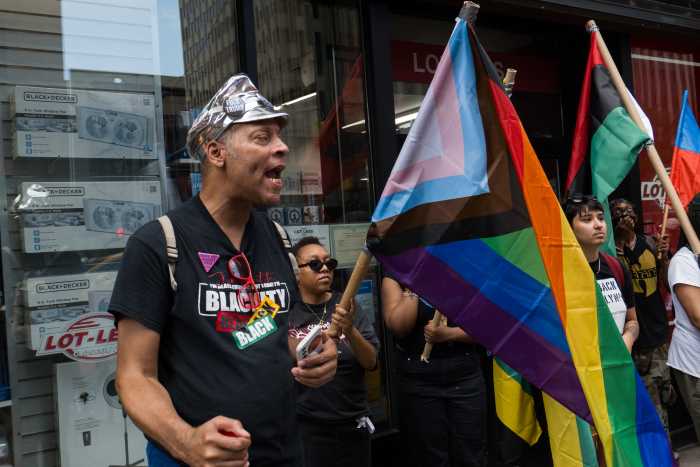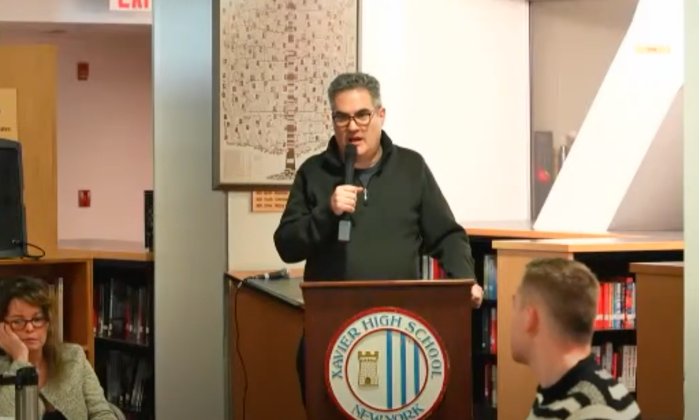Nine months after repeal law signed, policy that threw out 14,000 service member ends
After nearly 18 years and more than 14,000 discharges, the US military’s Don’t Ask, Don’t Tell (DADT) policy barring open service by gay and lesbian personnel ended at 12:01 a.m. on September 20.
The policy’s demise came nine months after President Barack Obama signed legislation approved in the lame duck session of the 2010 Congress setting out conditions he and military leaders needed to meet before formally ending the policy. In late July, the president, Defense Secretary Leon Panetta, and Joint Chiefs of Staff Chair Michael Mullen made the required certification that opening up service to gays and lesbians would not compromise national security or military readiness, effectiveness, and retention.
As the repeal law spelled out, the policy expired 60 days later.
“Today, the discriminatory law known as Don’t Ask, Don’t Tell is finally and formally repealed,” Obama said in a written statement. “As of today, patriotic Americans in uniform will no longer have to lie about who they are in order to serve the country they love. As of today, our armed forces will no longer lose the extraordinary skills and combat experience of so many gay and lesbian service members.”
Then, in a nod to the anger, frustration, and pain felt by those snared by DADT and removed from the military, the president added, “And today, as Commander in Chief, I want those who were discharged under this law to know that your country deeply values your service.”
Obama concluded, “For more than two centuries, we have worked to extend America’s promise to all our citizens. Our armed forces have been both a mirror and a catalyst of that progress.”
At a press availability on the day DADT faded into history, Mullen, whose Senate testimony in February 2010 that the policy could not longer be defended was a significant factor in moving the repeal effort forward, said, “I testified in early 2010 that it was time to end this law and this policy. I believed then, and I still believe, that it was first and foremost a matter of integrity; that it was fundamentally against everything we stand for as an institution to force people to lie about who they are just to wear a uniform. With implementation of the new law fully in place, we are a stronger joint force, a more tolerant joint force, a force of more character and more honor, more in keeping with our own values. I am convinced we did the work necessary to prepare for this change, that we adequately trained and educated our people, and that we took into proper consideration all the regulatory and policy modifications that needed to be made.”
Army veteran Aubrey Sarvis, the executive director of Servicemembers Legal Defense Network (SLDN), a leading advocacy group that worked to end DADT, said in a press release, “Today marks the official end of Don’t Ask, Don’t Tell and is an historic milestone along the journey to achieving LGBT equality in America’s military. Thanks to veterans, active duty, leaders, allies, and supporters everywhere, this is a monumental day for our service members and our nation… Our work is far from done, but today we pay tribute to the service and sacrifice of our patriots as we look forward to a new era of military service.”
Even while DADT remained firmly in place, the government conceded that it came with a cost. In 2005, the Government Accountability Office (GAO), the investigatory arm of Congress, reported that the Defense Department did not collect data specifically on the policy’s cost, but based on recruitment and training expenses for the overall military force, GAO estimated that $95 million in 2004 dollars had been spent in DADT-related costs during its first decade. It noted that, separately, the Army, Navy, and Air Force had estimated their personnel replacement costs due to DADT during the same period at 29.7 million, 48.8 million, and $29.7 million, respectively.
Five years later, GAO estimated the cost from 2004 through 2009 at $193.3 million.
The 2005 GAO report noted that the roughly 9,500 service members discharged up to that point included 757 who held “critical occupations” that would otherwise qualify them for reenlistment bonuses. A total of 322 discharged service members were trained in valued foreign languages –– such as those spoken in the Middle East –– including 98 who graduated from the Defense Language Institute rated “proficient” in such languages.
Researchers at several academic institutes pegged DADT’s costs higher than the government did.
The Palm Center, a UCLA Law School research institute that studies gender, sexuality, and the military, estimated its cost through the end of fiscal 2003 at $363.8. The Williams Institute, which studies legal issues affecting the LGBT community and is also part of UCLA’s law school, put DADT’s costs through the end of fiscal 2008 at $555.2 million.
The policy’s end prompted a burst of openly gay and lesbian service members coming forward.
“J.D. Smith,” an Air Force first lieutenant who used that pseudonym to organize OutServe, a group of gay and lesbian active service personnel that grew to 4,300 members, came out as Josh Seefried, a finance officer in the 87th Air Base Wing stationed at New Jersey’s Joint Base McGuire-Dix-Lakehurst. A column published in Stars and Stripes, the military’s independent news service, noted that few of Seefried’s colleagues at McGuire-Dix-Lakehurst would be surprised by his announcement, an indication that despite DADT’s often harsh effects, many service members were known to be gay by their peers.
OutService Magazine, distributed on September 20 at military bases around the world, profiled 101 newly out members of the services.
The front page of the September 13 Marine Corps Times , a Gannett publication, featured an image of a full dress uniform and hat with the headline “We’re Gay, Get Over It” where a head would otherwise be.
In a particularly poignant example of what the end of Don’t Ask, Don’t Tell meant, a 21-year-old soldier stationed in Germany, who had earlier posted a series of YouTube videos with his head hidden talking about being gay in the military, faced the camera and allowed the world to watch him call his father in Alabama to come out to him. He explained he did not want to go public until his family knew about him.
The soldier, whom the Washington Post identified as Randy Phillips, based at Ramstein Air Force Base, had made his initial YouTube postings with the name “AreYouSurprised.” In his September 20 video, the soldier, clearly anxious about the call he said he delayed making for four hours, began the conversation by asking his father, “Can I tell you something?,” and then, “Will you love me, serious?” After being told his son was gay, the soldier’s father replied, “I still love you son. Yes, I still love you.” Having been assured his father would always be proud of him, the soldier ended the call, wiped his brow, and standing up to walk off-camera, said, “Oh my Lord.”


































